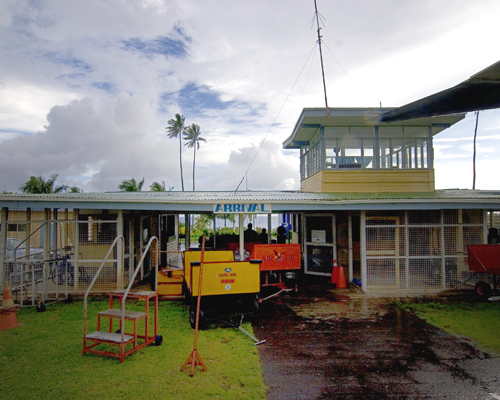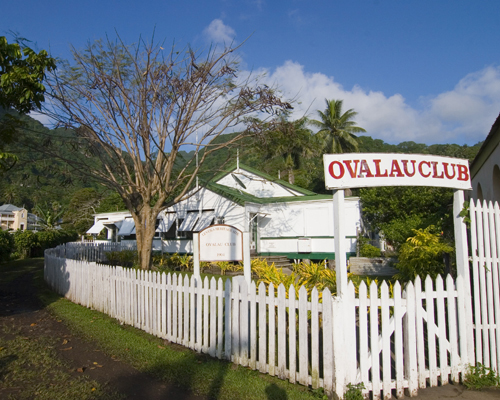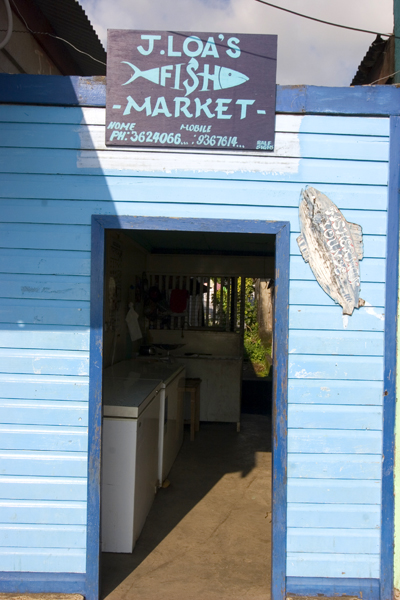I arrived on Taveuni, Fiji’s “Garden Island,” in the middle of a tropical downpour. Know why they call Taveuni the Garden Island? Because it’s covered by a tropical rainforest. And gets tons of…rain.
But after several weeks on Ovalau, it seems so lush. And refreshing.
On the short drive over from the tiny airport (which looked almost exactly like the one on Ovalau; I wonder if somebody went around 20 years ago building little airport replicas all over Fiji, as if they were just so many aeronautical McDonald’s), I soaked up scenes outside my taxi window of towering kauri trees (favored by the ancient Fijians for carving into massive war canoes) and waving coconut trees.
In fact, I’m staying in a beachfront cottage about five minutes from the airport in Matei, on the north end of the island, called Coconut Grove because…it’s in the middle of a coconut grove. The owner, Ronna Goldstein, is a Jewish girl from Florida who quit her job in copier sales twenty years ago to live the good life with her boyfriend. Evidently they thought it would be fun and romantic to open a restaurant in Fiji.
I’m supposed to interview Ronna over the next few days and write a piece for Islands magazine called “How To Live the Life.” You know, how to run away from your day job in the States and open a little restaurant or B&B in Fiji. I have a feeling it’s not as glamorous as it sounds. We’ll see.





Recent Comments